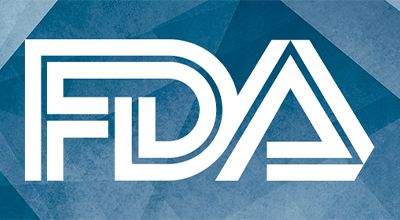FDA Grants Priority Review to Bastilimab for Recurrent or Metastatic Cervical Cancer
The FDA granted a priority review for a Biologics License Application (BLA) to bastilimab for the treatment of recurrent or metastatic cervical cancer.
FDA Grants Priority Review to Bastilimab for Recurrent or Metastatic Cervical Cancer

The FDA granted a priority review for a Biologics License Application (BLA) to bastilimab for the treatment of recurrent or metastatic cervical cancer, according to Agenus Inc., the manufacturer of the drug.
Bastimilab, an anti—PD-1 drug, is currently undergoing clinical trials both as a monotherapy and in combination with zalifrelimab, Agenus’ anti—CTLA-4 drug.
In accordance with the Prescription Drug User Fee Act (PDUFA), the FDA is expected to make a decision by December 16, 2021, the established target action date. In a press statement, Agenus claims that the potential approval of this drug may provide significant improvements both in safety and effectiveness of the treatment of serious conditions.
In April of 2021, Agenus submitted a BLA to the FDA seeking an accelerated of approval of balstilimab after data from a pivotal phase 2 trial (NCT03894215) indicated that the agent had a positive response in the treatment of patients with recurrent or metastatic cervical cancer on or following chemotherapy.
At the 2020 ESMO Virtual Congress, presented data revealed that, in the modified intent-to-treat (mITT) population (n=160) and 13% (n = 18; 95%CI, 8% -20%), balstilimab monotherapy had a best overall response rate (ORR) at 14% (n=23; 95% CI, 10%-21%) among a subset of patients who had received at least 1 or more lines of chemotherapy (n=138). In both groups, the duration of response (DOR) with balstilimab lasted 15.4 months.
Among the mITT population participants, 3 patients reported a complete response (CR) and 20 reported a partial response (PR). The ORR was 19.0% among those with PD-L1 positivity (95% CI, 13%-28%), while those without PD-L1 expression reported an ORR of 10.0% (95% CI, 4%-22). Between participants who had already received at least 1 or more lines of chemotherapy, 3 patients experienced a CR while 15 achieved a PR. In this group, patients with PD-L1-positive disease reported an ORR 18.0% (95% CI, 11%-27%) and those without PD-L1 expression reported 8.0% (95% CI, 3%-21%).
The immune-oncology market considers PD-1, a negative regulator of immune activism, a foundational target. According to Agenus, this, “novel, fully human monoclonal immunoglobulin G4 (IgG4) designed to block PD-1 (programmed cell death protein 1) from interacting with its ligands PD-L1 and PD-L2.”
Reference
Agenus. Agenus Announces U.S. FDA Acceptance and Priority Review of Balstilimab Biologics License Application for the Treatment of Recurrent or Metastatic Cervical Cancer. June 17, 2021.


